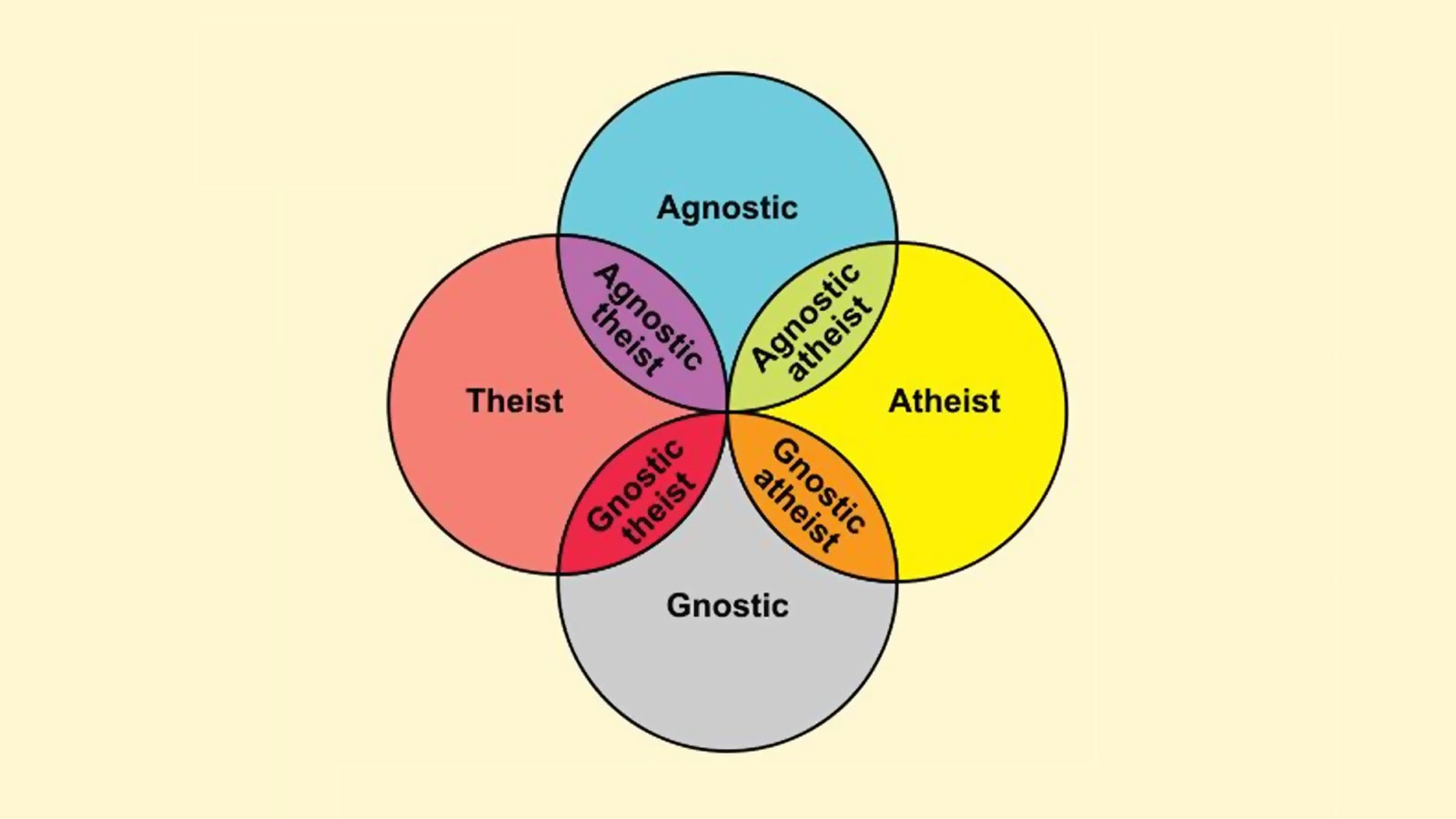This is an old paper I wrote for a religion class, and I’m only leaving it here for posterity. I may replace it with a more concise version (because this one is too academic) once I feel the motivation. This version does not fully represent what I believe now.
Agnosticism is the belief that it is impossible to determine whether or not deities exist. Many people, including those who call themselves agnostic, believe that it is somewhere between atheism and theism. At first glance this may seem like an acceptable assessment, but that is incorrect. The purpose of this paper is to show how putting agnostics in the middle of the theistic belief spectrum is a problem, and furthermore, to propose a solution. This paper will not address the validity of agnosticism (or a/theism for that matter). It does not matter what the answer is for the purpose of this paper. There are a trillion pages on the subject that need not be addressed here. I will merely attempt to show that the word is being improperly used.
Agnosticism, which has developed out of the schism between the belief and the disbelief in deities, is fundamentally flawed. According to the definition of the word, it is impossible to know whether or not deities exist. According to logic, which is undeniable, either deities exist or they do not exist. Agnosticism, on the other hand, implies that there is a third answer to this binary question. If it is impossible to know the answer, then there is no point in claiming agnosticism. It is a non answer to a non point. But, the truth is that it can be determined. There is an answer to the question. Many people say they are agnostic when they are actually undecided. The way they use the term, it implies they have not made up their mind. But they have made up their mind. They claim that there is no way to find out the answer. Even considering that we are limited beings with finite capacities to understand the infinite universe, this argument is based on the objective truths of basic logic.
The solution to this problem is fairly simple, but implementing it is probably the most difficult part. First of all, people need to be made aware that the term is flawed and that the vast majority of people who say the word are using it improperly. Secondly, we (as a culture) need to develop another word that properly represents what people mean when they say agnostic. If someone is undecided, if they have serious doubts about the existence of deities, or if they cannot convince themselves that deities do not exist, there should be a term for each of these situations. Agnosticism is none of these. As far as wordsmithing goes, I will only suggest that new words be chosen. I do not presume to be important enough to create the words for everyone else to use.
Some might argue that this is merely a discussion over semantics and discussing it is pointless, but this is less about the meaning of the word and more about how it is used. If we are going to discuss our religious or spiritual beliefs, then it is important that we all use proper terminology. When discussing something of such importance, the less confusion the better. There are also some people who might say that changing the definition of a word is practically impossible. That may be true, but once people start to understand the true meaning of a word, the definition does not need to change. They will simply start using another word, or start using the original term properly. Then there are those who might claim that this whole discussion is irrelevant, that the term agnostic is fine the way it is and is always used correctly. If after reading this paper they still feel that way, then I have not succeeded in making my case.
Ironically, the intention of this paper was not to change anything except the way people think about the term agnostic. Discussions, debates, and conversations about spirituality happen all the time, and it is important to have people on the same page, even if they are reading from different books.

Leave a Reply